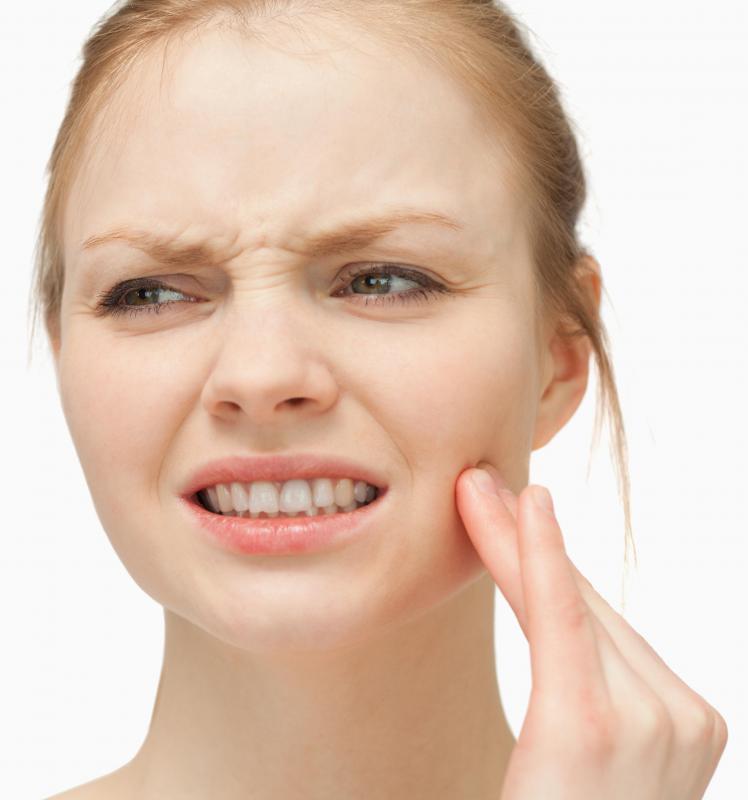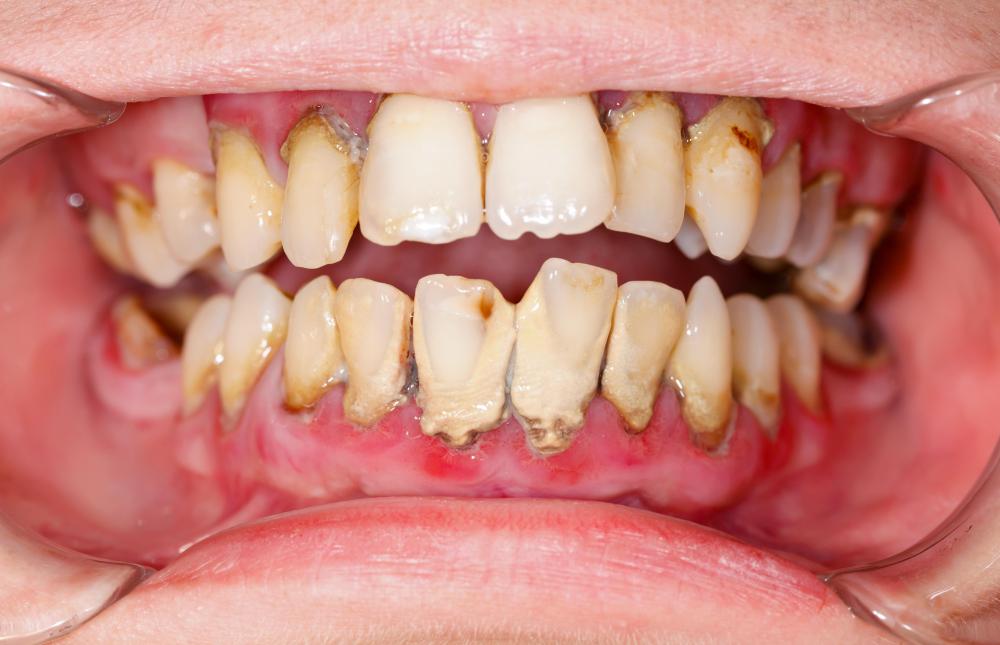At WiseGEEK, we're committed to delivering accurate, trustworthy information. Our expert-authored content is rigorously fact-checked and sourced from credible authorities. Discover how we uphold the highest standards in providing you with reliable knowledge.
How can I Deal with Root Canal Pain?
Many people imagine root canal pain to be at its worst during the procedure and are surprised to discover that the pain is comparable to getting a filling. Following a root canal, however, you might experience pain that persists for days or even longer. In many cases, over-the-counter medications and pain relievers are sufficient for pain management. Your dentist might reduce the affected tooth, preventing it from grinding when your jaw is shut and dramatically reducing your root canal pain. In cases of chronic pain following a root canal, persistent infection is most likely responsible, requiring antibiotics or a second root canal to relieve the pain.
Root canals have a reputation for causing excruciating, unbearable pain, but this is largely undeserved. In fact, a root canal is performed because the patient is already in pain, because of the decay and infection of the tooth. Compared with other dental procedures requiring extensive drilling and filing, a root canal is a quiet affair, primarily involving scraping dead and infected material away with hand instruments. In the days following the procedure, however, some root canal pain can be expected.

If only the tooth is infected, you usually will experience only minimal root canal pain. More severe pain is likely, however, if the infection has spread beyond the tooth, either to the ligament anchoring the tooth or to the adjoining bone tissue. Only the infection within the tooth can be removed with a root canal. Any infection of surrounding tissues will call on the body’s recuperative powers and perhaps a course of antibiotics.

Pain experienced after a root canal is typically caused by inflammation of the ligaments and other tissues surrounding the tooth. Swelling might cause the tooth to be slightly raised, making it more prominent and putting it under more pressure when the jaw is clenched. This causes further irritation, and with it, more intense pain. Pain relievers such as ibuprofen and acetaminophen can help to prevent the inflammation and manage the pain in the days following a root canal. The dentist might also reduce the profile of the affected tooth to prevent irritation when the teeth are closed tight.

When patients experience temperature-sensitive root canal pain, the source is probably within the tooth itself. Canals are be difficult to see, and during a root canal, the dentist might miss a bit of infected material. If cold causes root canal pain, consultation with the dentist is recommended to see whether a second root canal is required.
AS FEATURED ON:
AS FEATURED ON:



















Discussion Comments
The worst pain I have had was after the root canal retreat. I had a tender tooth for about six years from a root canal I had 30 years ago. The next few days I had a throbbing jaw. My pain pills would only last about 4 hours. (take every eight hours ). I couldn’t sleep. The pain would wake me up. A cold compress would slightly help. I looked on the internet, and there was nothing about retreats of root canals or the pain after.
I was really dreading my dentist appointment to take care of my root canal. I was scared to have the procedure done and was worried about root canal pain after the procedure. I really worried for nothing.
It really wasn't all that bad - just a little bit of discomfort. My mouth felt kind of weird for a few hours later on, but I had no complications at all. I guess it depends on how bad it is before you have it done. I took a couple of Tylenol when I got home and never had to take anything else.
The greatest pain I had when I had a root canal, was leading up to having the procedure. I had intense pain for a day, but was able to get in the same day for the root canal. Once the process was done, it felt so good to have root canal pain relief, that the discomfort I felt after was nothing.
I never like to go to the dentist for anything and a root canal is no exception. I have not had another one since, but would not hesitate at all just to have relief from the pain.
Some people never even know they have to have a root canal until they have their teeth checked because they have no pain leading up to that point.
Post your comments